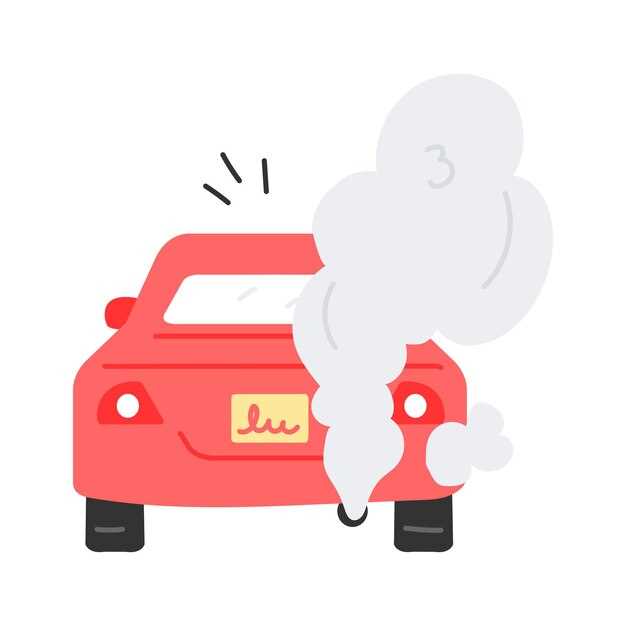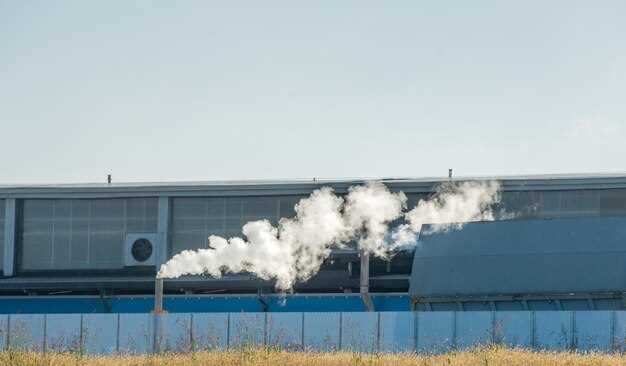

Diesel engines are known for their efficiency and durability; however, excessive smoke emissions can signal underlying troubles that must be addressed. The presence of smoke not only indicates a malfunctioning engine but also poses environmental concerns and can lead to regulatory issues for vehicle owners. Understanding the reasons behind excessive diesel exhaust smoke is crucial for maintaining optimal engine performance and ensuring compliance with emissions standards.
One of the primary causes of diesel smoke is incomplete combustion, which occurs when fuel does not burn entirely within the combustion chamber. This can be attributed to several factors, including improper fuel mixture, engine wear, or malfunctioning components such as injectors. When the combustion process is compromised, unburned fuel can escape, resulting in visible smoke. Identifying these issues early on helps prevent further damage and enhances the overall efficiency of the engine.
Another significant contributor to diesel exhaust smoke is poor maintenance practices. Regular servicing and timely replacement of engine components like air filters, fuel filters, and turbochargers play a vital role in reducing smoke emissions. Neglecting these maintenance tasks can lead to increased trouble down the line, as accumulated residues and worn-out parts exacerbate smoke production. By prioritizing maintenance, vehicle owners can mitigate smoke emissions and prolong the life of their diesel engines.
Why Does Black Smoke Indicate Fueling Issues in Diesel Engines?
Black smoke emanating from a diesel engine is a clear sign of improper combustion, often linked to fueling issues. When a diesel engine runs optimally, it should have an efficient air-fuel mixture to ensure complete combustion. However, when the ratio of fuel to air is off–specifically when there is too much fuel entering the combustion chamber–black smoke is produced.
This excess fuel leads to unburned hydrocarbons being expelled through the exhaust, resulting in visible black smoke. Several factors can contribute to this problem, including a clogged air filter, malfunctioning fuel injectors, or a faulty fuel pump. Each of these components plays a crucial role in maintaining the right balance for effective combustion.
Moreover, when engines condition deteriorates due to inadequate fuel atomization or improper injection timing, it can exacerbate the smoke issue. In such cases, the engine struggles to fully atomize the fuel, causing large droplets to escape combustion. This not only results in visible smoke but can also indicate underlying trouble that may require immediate attention to prevent further damage to the engine.
Therefore, observing black smoke should prompt owners to investigate the fueling system as a priority. Regular maintenance and timely inspection of the fuel system are essential to minimize smoke emissions and ensure the efficiency and longevity of diesel engines.
How Air Intake and Filtration Affect Diesel Smoke Emissions?

The efficiency of the air intake system and the quality of the filtration directly influence diesel smoke emissions. When the air intake is restricted or the filter is clogged, the engine struggles to draw in sufficient air. This trouble results in an improper air-fuel mixture, often leading to incomplete combustion.
Incomplete combustion is a primary cause of black smoke from diesel engines. When there is not enough air to support the burning process, excess fuel remains unburned, generating dark smoke. This not only harms visibility but also indicates that the engine is operating inefficiently, which can result in increased emissions and potential long-term damage.
Regular maintenance of the air filtration system is crucial. Clean filters allow for optimal airflow, ensuring the engine receives an adequate supply of oxygen. This promotes complete combustion, significantly reducing the amount of black smoke emitted. On the other hand, dirty or damaged filters can severely hamper air intake, exacerbating smoke issues.
In conclusion, proper air intake and filtration are vital for minimizing excessive diesel exhaust smoke. Keeping these systems in check will enhance engine performance, reduce pollution, and ensure compliance with environmental standards.
What Are Common Mechanical Problems Leading to Diesel Exhaust Smoke?

Diesel engines are known for their power and efficiency, but when they produce excessive black smoke, it indicates underlying mechanical issues that need immediate attention. One common problem is a malfunctioning fuel injection system. If the injectors are clogged or damaged, they can deliver too much fuel to the combustion chamber, leading to incomplete combustion and black smoke emissions.
Another frequent source of trouble is the air intake system. A restricted air filter or a malfunctioning turbocharger can limit the amount of air entering the engine, resulting in a rich fuel mixture. This imbalance generates excessive black smoke as the engine struggles to burn the surplus fuel adequately.
Additionally, worn engine components, such as piston rings or valves, can lead to poor sealing and allow oil to enter the combustion chamber. When oil burns along with fuel, it produces dark exhaust smoke, indicating significant wear and potential damage. Regular maintenance and timely repairs are essential to avoid these mechanical problems that can compromise engine performance and increase emissions.






